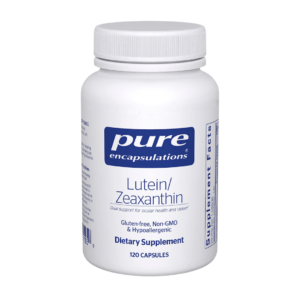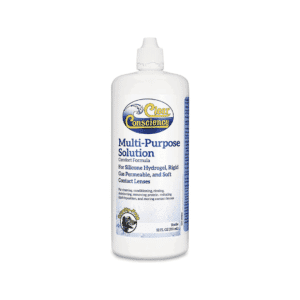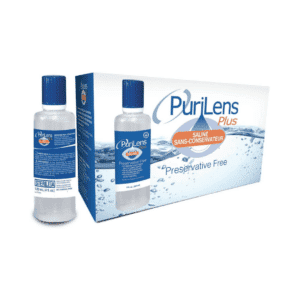As we age, it’s natural for our vision to change over time. What once was easy to see, may now require reading glasses or contacts for driving. It’s a natural part of life, somewhat influenced by genetics. Fortunately, there are natural ways to enhance your vision and maintain healthy eyesight. Want to know how to improve your vision? Look no further! Does diet really make a difference? Can eye damage be reversed?
Keep reading to learn more about natural eye care. Don’t be iris-ponsible with your vision (…pun intended).
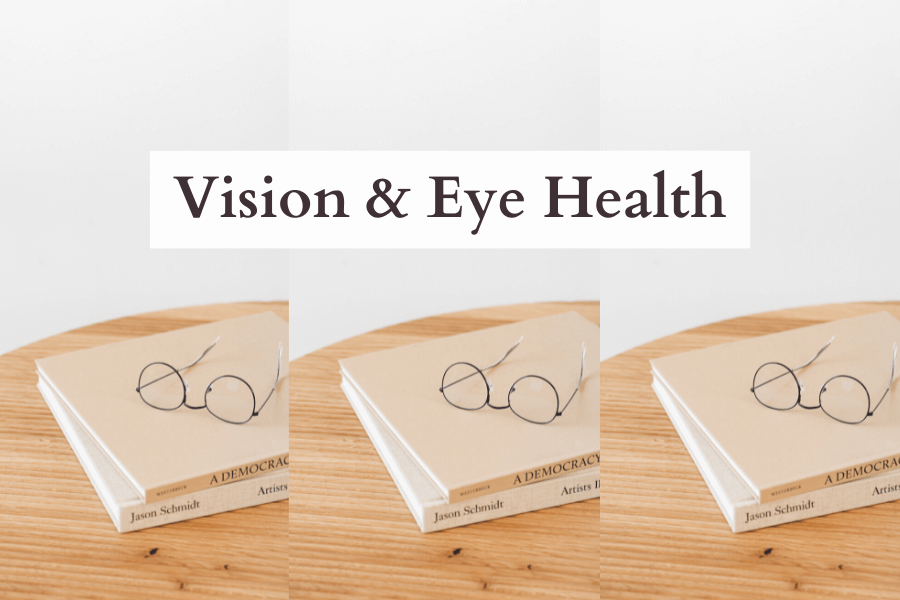
Note: This article contains affiliate links, meaning In On Around will make a small commission at no additional cost to you. This helps me maintain the site. As always, I value full transparency & only work with brands I love and trust.
Nearsightedness vs. Farsightedness Explained
To start, let’s first dive into the differences between two very common eye conditions. Nearsightedness (also known as Myopia) affects about 40% of the United States population. This means that it’s difficult to see far away. This happens when the eyeball is too long or the cornea is too curved, causing light to focus in front of the retina instead of on it.
Many other people suffer from farsightedness (also known as Presbyopia), making it difficult to see up close. This impacts about 5-10% of the American population. This occurs when the eyeball is too short or the cornea is too flat, causing light to focus behind the retina instead of on it.
Common Eye Conditions
There are many, many other common eye conditions that you might experience, especially as you age, such as:
- Astigmatism
- Presbyopia – age-related loss of eye strength
- Macular Degeneration – can be hereditary
- Cataracts
- Glaucoma – can be hereditary
- Diabetic Retinopathy
- Dry Eye
- Graves’ Disease – due to a thyroid condition
- Retinal Degeneration – can be hereditary
- Optic Atrophy – can be hereditary
- Hyperopia
Computer Vision Syndrome (also known as CVS) can add unnecessary stress to your eyes, although it hasn’t been shown to necessarily damage your eyes long-term. If you’re on the computer regularly, check out this article about blue-light glasses: Blue Light Glasses Benefits – Do They Work?
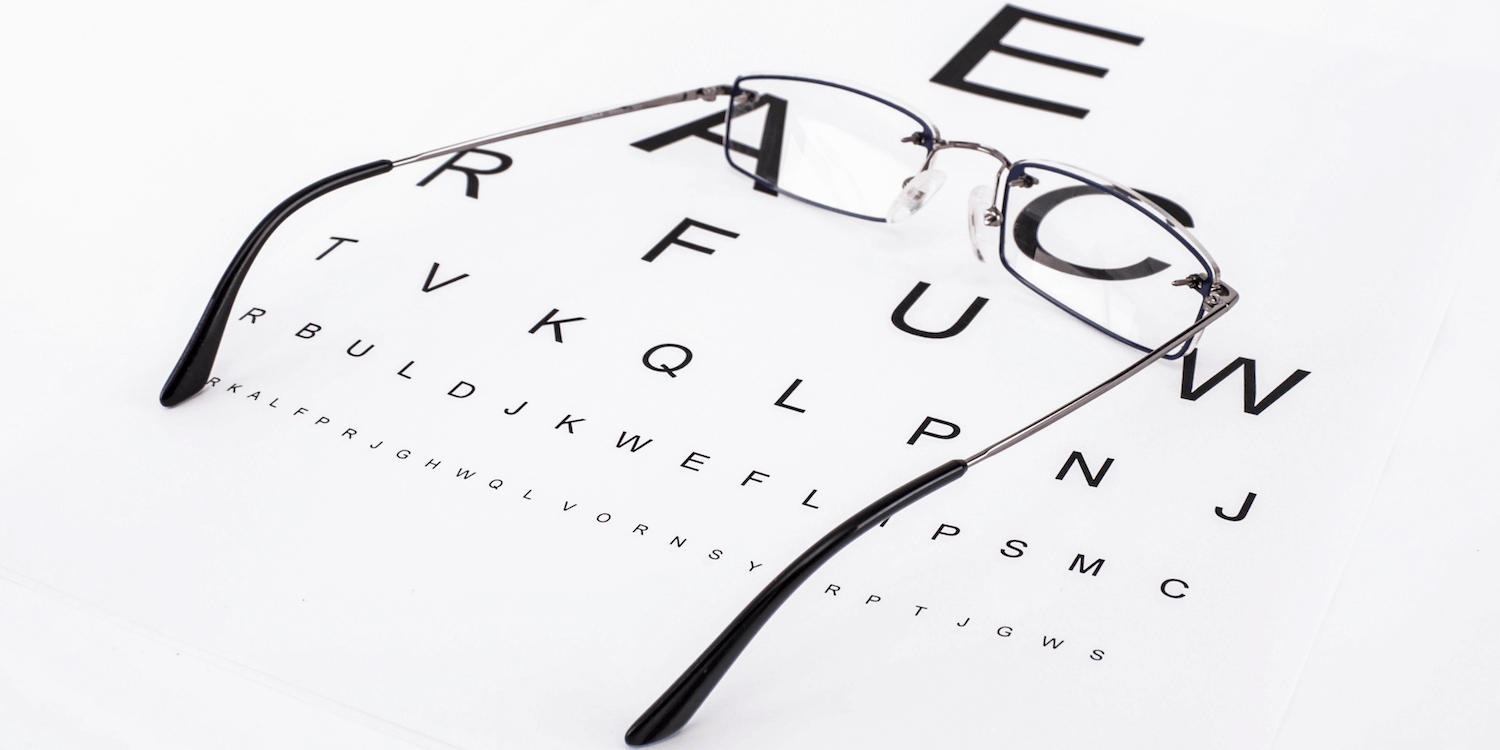
How To Improve Eyesight Naturally At Home
So you want to improve your vision… now what? Let’s dive into the 13 top tips to prioritize ocular health.
1 – Eat A Healthy Diet Rich In Vitamins & Minerals
Focus on a well-balanced diet full of organic vegetables and fruit. Dark leafy greens and fish (high in omega-3 fatty acids) are especially beneficial. Opt for meals rich in antioxidants. Eating a well-balanced healthy diet is, by far, one of the best ways to maintain your eye health. [x]
What vitamins and foods are good for vision?
- Vitamin A – like in eggs, pumpkin, carrot, papaya, and sweet potato
- Vitamin C – like in oranges, bell peppers, cauliflower, cabbage, and lemon
- Vitamin E – like in almonds, peanuts, and sunflower seeds
- Vitamin B – like in leafy greens, eggs, and grass-fed meat
- Lutein – like in leafy greens, corn, egg yolks, and kale
- Omega-3 Fatty Acids – like in wild-caught fish
- Anthocyanin – like in blueberries and blackberries
- Zinc – like in kidney beans and lima beans
For this reason, wild-caught fish, organic nuts, pasture-raised eggs, organic citrus, organic leafy greens, and organic legumes are ocular-health superfoods! In addition, there are many herbs thought to improve vision, such as Ginko Biloba. Always speak with your naturopathic physician before incorporating supplements.
To learn more about healthy food options, check out: How To Eat An Anti-Inflammatory Diet
Eat for your eyes! Your food choices matter.
2 – Focus On Carotenoids
What Are Carotenoids?
Carotenoids are pigments present in fruits, vegetables, and some bacteria and algae, providing them with their characteristic bright red, orange, and yellow colors. They have a significant function in photosynthesis and contribute to human health. Certain carotenoids, like beta-carotene, are transformed into vitamin A in the body, and others act as antioxidants, potentially lowering the chances of chronic illnesses.
Lutein and zeaxanthin are carotenoids that are round in the eye retina, so they’re extremely important to get into your diet. Luckily, broccoli, zucchini, eggs, and leafy greens are rich in these compounds. If you’re not incorporating enough carotenoids into your diet, talk to your doctor about starting lutein supplements.
Do Carrots Improve Your Eyesight?
Yes, carrots are rich in vitamin A and lutein, which can support eye health. Carrots can help play an important role in maintaining the health of the cornea for strong vision. However, carrots alone won’t typically improve your vision. It’s essential to have a well-rounded diet rich in many vitamins and minerals.
3 – Exercise Your Eyes & Body Daily
Full-body exercise can also prevent Type 2 diabetes, which is a major contributor to diabetic retinopathy, oftentimes in overweight or obese people. High blood pressure, also common in people with obesity, can also impact eyesight. Aim to exercise at least 20 minutes every day – even a brisk walk can make a difference!
Follow The 20-20-20 Rule
This is a great way to reduce eye strain! Every 20 minutes, stop staring at the computer and look at something that’s 20 feet away for at least 20 seconds. Set reminders on your phone, if you have to! Use the 20-20-20 rule to prevent eye strain.
Eye Exercise Examples
Eye exercise is also called vision therapy. Try some of these eye exercises on a daily basis:
- Eye Roll: This simple eye exercise involves rolling your eyes! Look up and circle your eyes around about ten times both to the right and to the left.
- Focus Change: You can also focus your eyes on objects at different distances (both near and far) to practice focusing your eyes. This is a simple, but powerful practice.
- Figure 8: Focus on an area of the floor about 8 feet away and make a figure 8 shape for about 30 seconds. Then do it in the opposite direction.
Remember to blink often to avoid dry eye (which is usually an issue when on the computer for long periods of time).
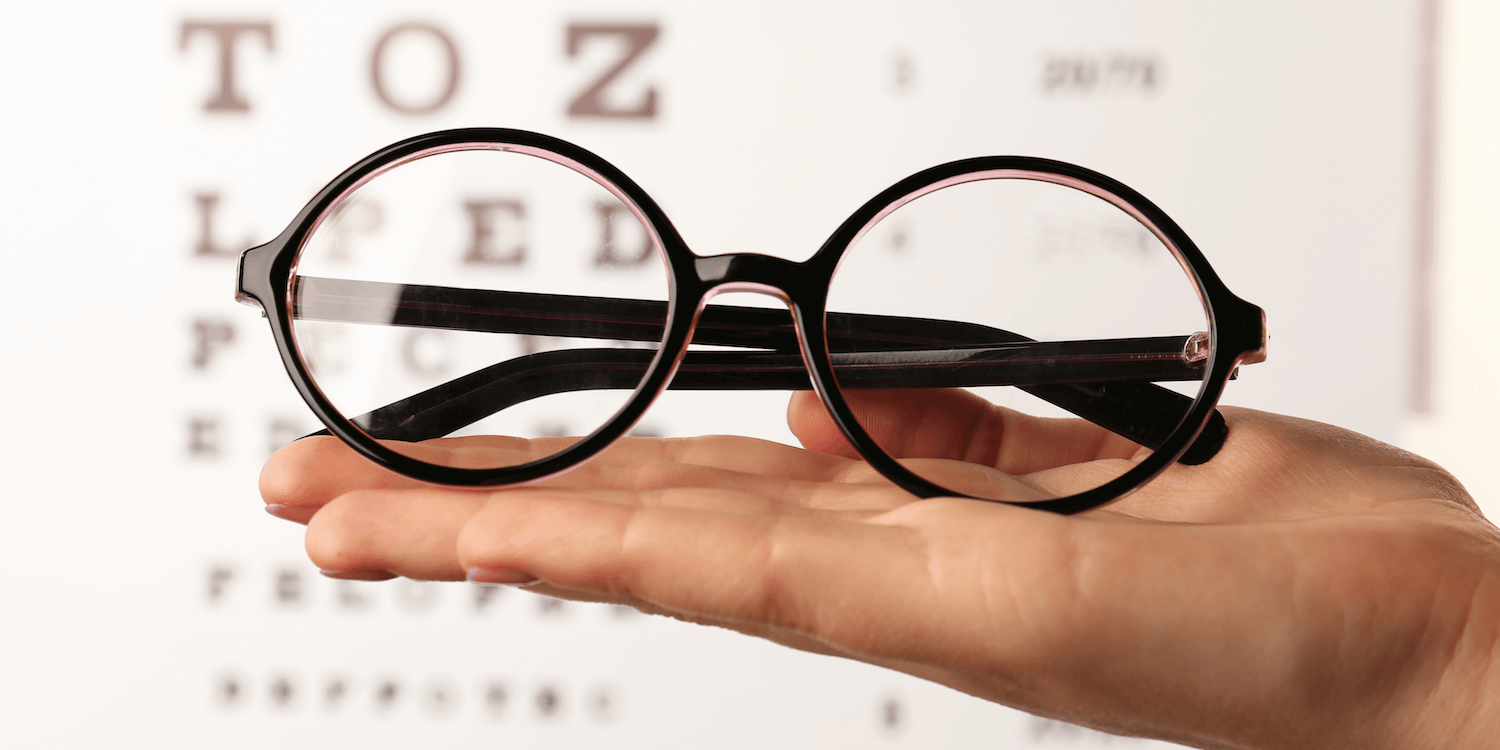
4 – Manage Chronic Conditions
The way you handle chronic illnesses can have a significant impact on the health of your eyes. Several chronic conditions, including high blood pressure, diabetes, and autoimmune diseases, can negatively affect the eyes. Properly managing any chronic conditions can greatly impact your eyesight.
Managing your overall health impacts your eye health.
5 – Protect Your Eyes
If you’re playing a sport that could damage your eyes (like racquetball or squash), always wear protective eyewear! No exceptions. Do the same if you’re doing construction or home renovations. You don’t want to get wood shavings or metal in your eyes (… ouch).
If you’re in a pool, keep your eyes sealed shut or wear goggles to avoid getting chlorine or bacteria in your eyes. Make sure you’re only swimming in well-maintained pools that are regularly cleaned.
Proper eye health begins with prevention.
6 – Be Careful In The Sun
If you have very sensitive eyes, sunglasses can help when you’re in the sun. While some sun exposure can be healthy, it’s never safe to look directly at the sun or any bright light. Protect your eyes with sunglasses that block 100% of UVA and UVB radiation or wear a wide-brimmed hat to block sun rays.
Although not stylish, full-coverage sunglasses (that cover the top, bottom, and sides of your eyes) offer the best protection.
While you’re at it, throw on some non-toxic sunscreen! More information: Holistic Sun Safety Tips & Non-Toxic Sunscreen
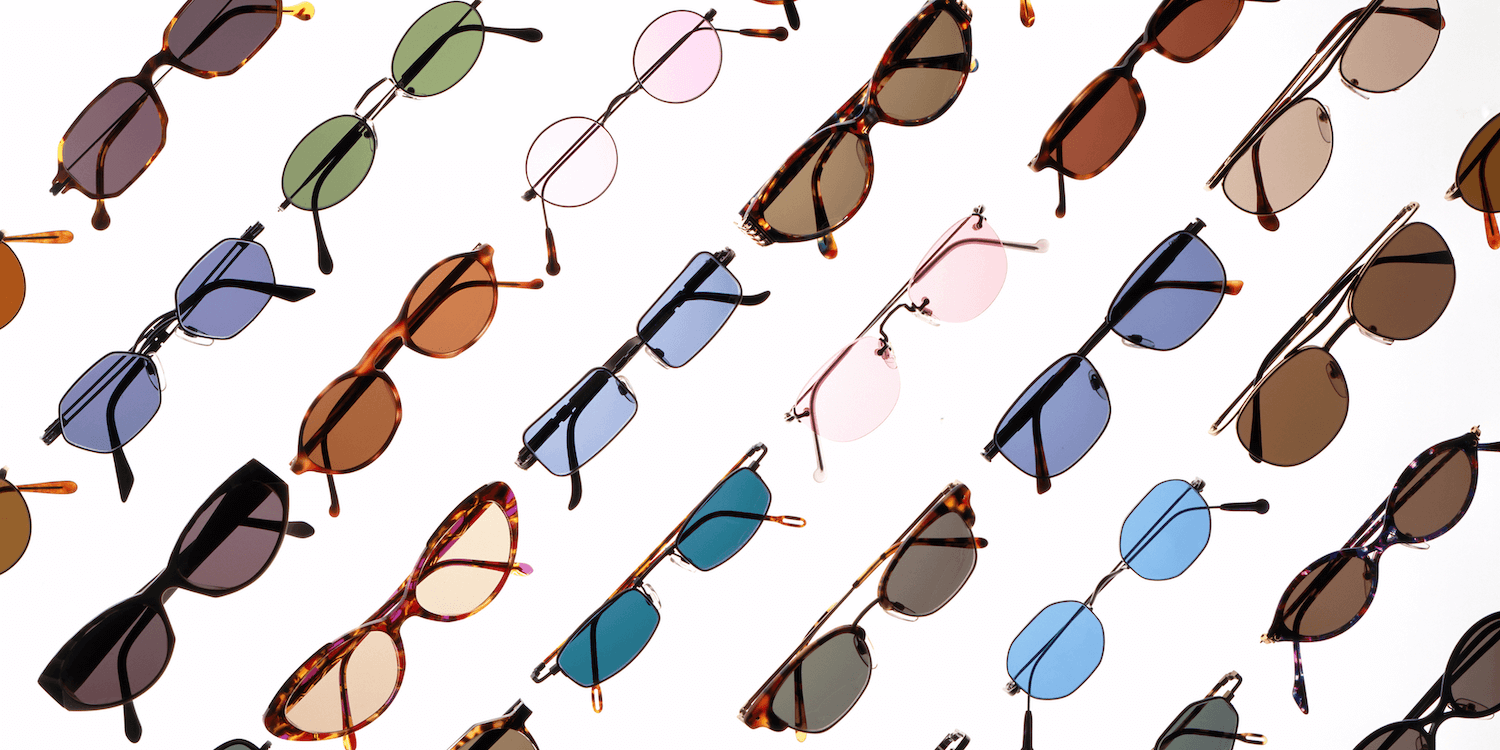
7 – Quit Smoking ASAP
If you’re a smoker, it’s time to quit. It’s not doing you ANY favors whatsoever. Smoking can increase your risk of cataracts and other chronic eye conditions (and, of course, can lead to so many other health issues).
Even if you don’t personally smoke, if you’re around people who do, you could still be impacted. This includes marijuana. Steer clear of anyone smoking!
8 – Understand Your Family History
It’s essential to understand your family history and your genetic predisposition to certain eye conditions. Glaucoma and macular degeneration, for instance, can be inherited. You want to fully understand any potential genetic risk, so you can best prevent them.
9 – Don’t Touch Your Eyes
When you do touch your eyes (like when putting in contacts), make sure your hands are completely clean. Make sure you always properly disinfect your contact solutions and throw away old contact lenses! By rubbing or touching your eyes excessively, you can cause eye strain, dryness, irritation, blurred vision, redness, and stinging (… no fun!). Prioritizing good hygiene is key.
10 – Prioritize Sleep
When you’re overtired, your eyes are strained. Adequate sleep is crucial for preserving good eye health. Resting and rejuvenating your eyes during sleep can enhance your ability to focus.
While you sleep, your eyes produce lubrication and eliminate irritants (like dust), which can prevent eye infections and dryness. Make sure you’re getting a good night’s rest! It’s essential for your overall wellbeing.
To learn more about the best sleep tips, check out: Open When You Can’t Sleep! 18 Tips To Beat Insomnia
11 – Have Regular Eye Exams
Getting your eyes dilated by an eye doctor can help detect early signs of eye disease. They can look into eye muscle function, eyesight clarity, eye pressure, and so much more.
In fact, the risk of blindness can be lowered by about 95% if certain conditions, like diabetic retinopathy, are discovered and treated early. [x]
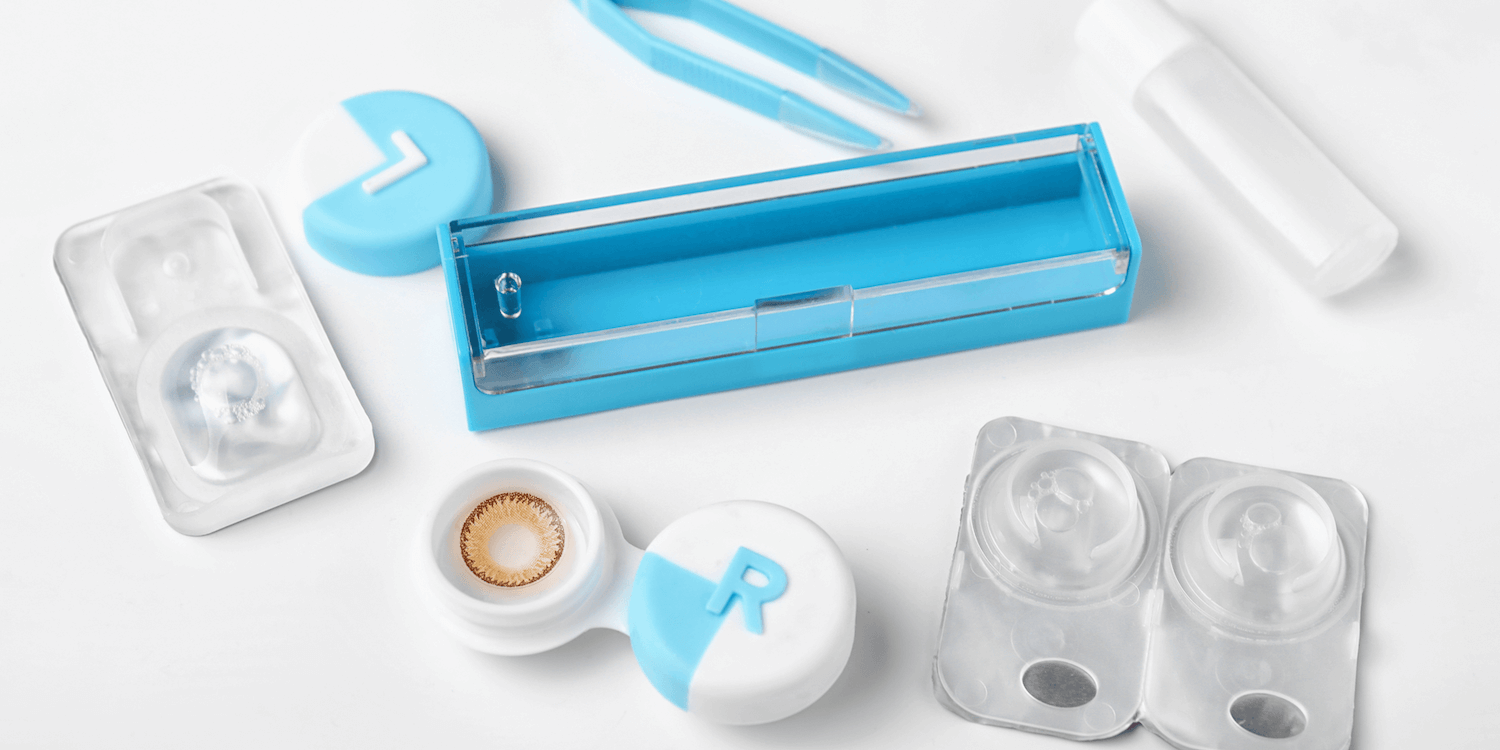
12 – Be Careful With Lighting
Be very careful with light intensity in your surroundings and on your phone, laptop, TV, and other electronic devices. It’s essential to regularly take breaks from the computer screen. Don’t stare are screens that are too bright! Too much exposure to bright lights and screens can impact your eye focus and cause eye strain.
This is especially relevant if you scroll on your phone in bed in a dark room before going to sleep.
13 – Never Sleep In Contacts
It’s always best to take your contact lenses out before you hit the hay! Wearing contacts overnight can limit the amount of oxygen flow to the cornea. This can cause irritation, corneal swelling, and an increased risk of eye infections. Bacteria and debris can also lurk in contacts, which can damage your eye.
Does Vision Get Worse With Age?
Yes, it’s normal to experience some vision changes with age. Some people will have worsening eyesight, while others may perceive colors in a different way or have a harder time focusing their eyes. Some people may need reading glasses, while others might need glasses to drive. It’s all a normal part of life and the aging process!
If you’re overweight, have a family history of eye conditions, are a person of color, or have other chronic health conditions, you’re at a higher risk of having eye issues as you age.
Is LASIK Natural?
Treating eyesight with LASIK is not a natural method. LASIK, which is an abbreviation for laser-assisted in situ keratomileusis, is a surgical procedure used to correct vision. It’s very popular, with around 600,000 adults in the United States having it done every year.
There are certain risks and complications associated with this procedure (like dry eyes, halos, glare, regression, or even blindness), so make sure to discuss all pros and cons before moving forward with the surgery. For some people, it’s life-changing… but it’s not without side effects. And it’s certainly not considered “natural” by any means.
Check Out The In On Around Shop
Does Wearing Glasses Damage Eyesight Long-term?
Most studies show that wearing glasses or contacts doesn’t damage eyesight long-term. However, from my experience, once I started wearing contacts daily, I became way more dependent on them over time mostly because I became aware of how blurry my vision usually is. Therefore, you can become “dependent” on them because you’ll get used to better eyesight.
Can Eye Damage Be Reversed?
The reversibility of poor eyesight depends on the root cause of the issue. Refractive errors, like nearsightedness, farsightedness, and astigmatism, can sometimes be improved, but oftentimes prevention is most important to ensure it doesn’t get significantly worse. Full reversal is rare, even with natural methods.
Eye diseases like glaucoma, macular degeneration, and diabetic retinopathy may not be treatable, but their development can be slowed with proper care. Be aware of these risk factors!
Final Thoughts – How To Improve Eyesight
Clearly, there are a lot of natural ways to protect your vision, but prevention is the #1 method. Make sure you’re eating a well-balanced diet and protecting your eyes. There are many health gurus online claiming that it’s possible to reverse eye damage (like by looking into the sun) – please do not do this! While sunlight can be beneficial for your eyes, it should never be looked at directly. Protect your eyes as much as possible.
⬇ Pin this “How To Improve Your Eyesight?” pic on Pinterest for future reference! ⬇
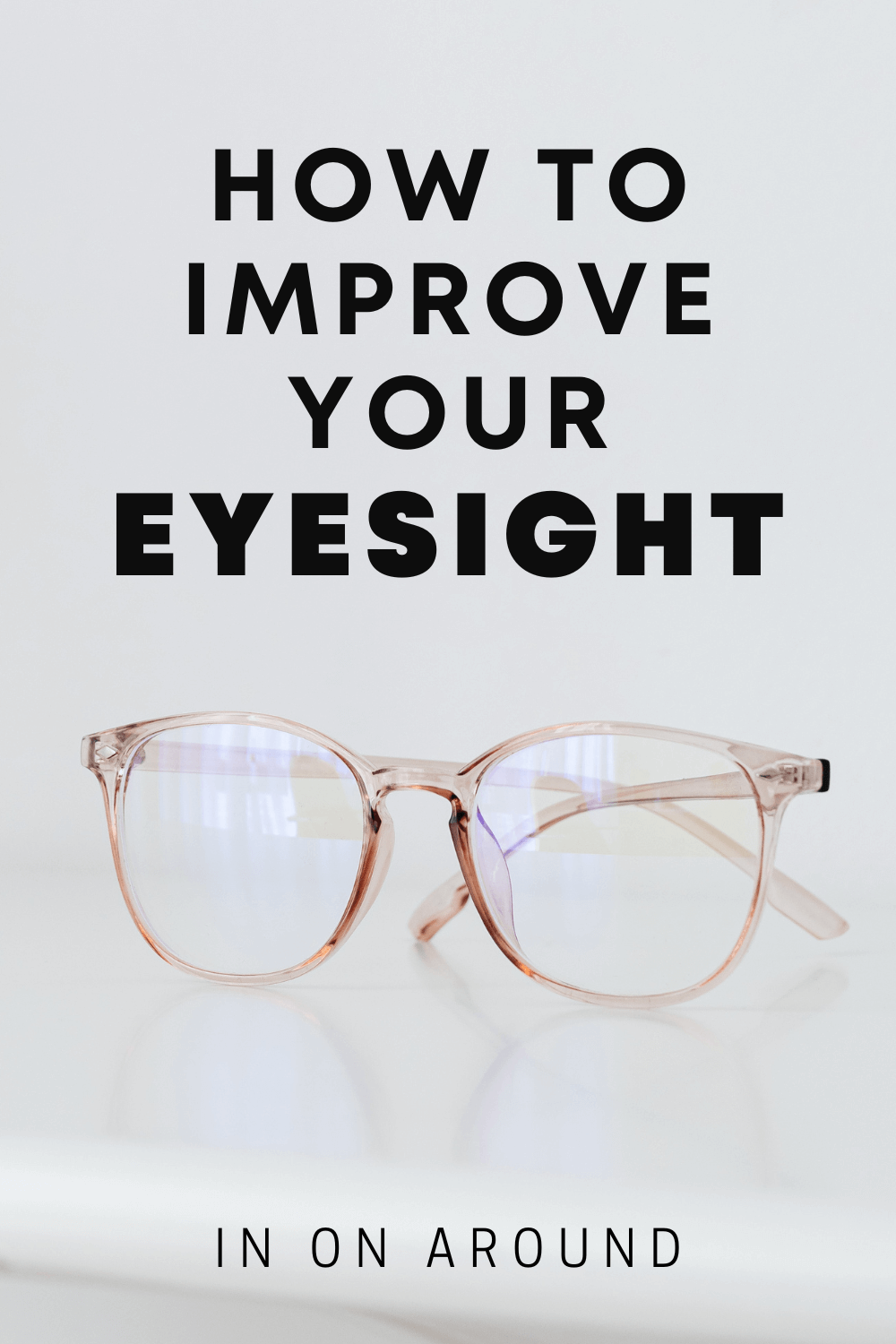
Frequently Asked Questions – Can You Improve Your Vision?
Click on the below FAQs to learn more about natural eyesight tips, how to improve eyesight when you have glasses, how to fix your eyesight, and how to make your eyesight better.
What Are Some Natural Ways To Improve Eyesight?
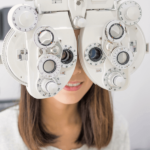
To naturally improve eyesight, one can adopt healthy habits such as consuming a balanced diet that’s rich in nutrients like antioxidants, omega-3 fatty acids, and Vitamin A, practicing eye exercises, and ensuring sufficient sleep. Moreover, minimizing screen time and safeguarding your eyes from UV rays can also aid in preserving good eye health.
Can Diet And Exercise Improve Eyesight Naturally?
Can Eye Exercises Improve Eyesight?
Can Foods Improve Eyesight?
Which Tip Is Your Favorite?
Let me know your thoughts and key takeaways in the comments below!
You can watch our web story here.
xoxo,

Want to read more? Check out my other articles here!
Other references on Eye Health Tips: Weill Cornell, Advance Eye Care Center, Healthline, AAO, Kraff Eye Institute, NHS, Cooper Vision, Versant Health, Forbes, N Vision Centers, Times Of India, Kerala Ayurveda, Florida Eye Specialists, Medical News Today, Optical Masters, Laser For Eyes, SCMP, NIH, Harvard, Cleveland Clinic
Copyright In On Around LLC 2023 ©. The statements made on this website have not been evaluated by the FDA (U.S. Food & Drug Administration). They are not intended to diagnose, treat, cure, or prevent any disease. The information provided by this website should not be used as individual medical advice and you should always consult your doctor for individual recommendations and treatment. The information contained in this site is provided on an “as is” basis. Related to this site, there are no guarantees of completeness, accuracy, usefulness, or timeliness. In On Around LLC assumes no responsibility or liability for any errors or omissions in the content of this site.

